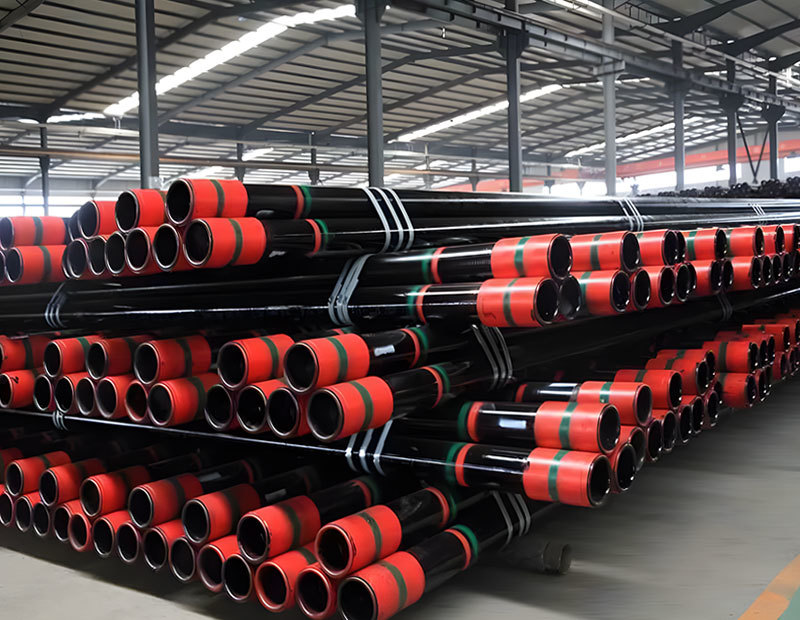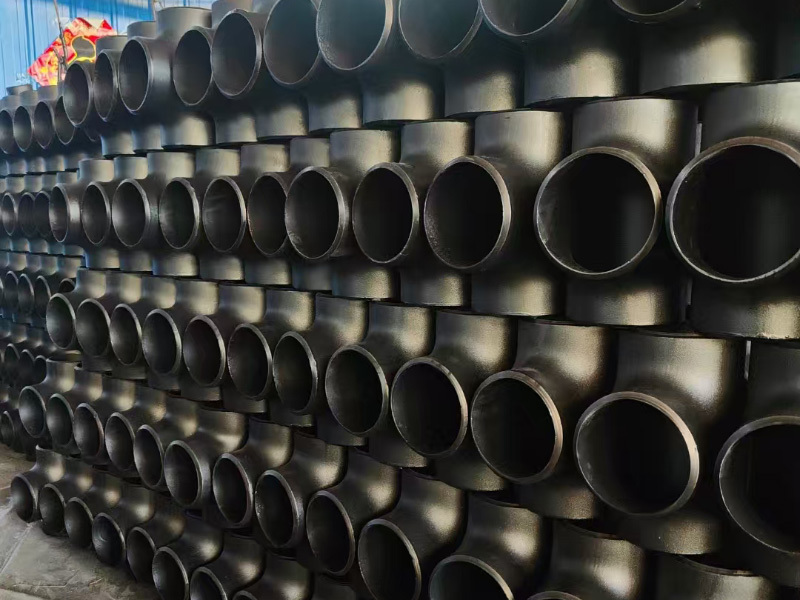Leading Smls Pipe and fittings supplier from China since 1991
Understanding the Essential Features of API 5CT Pipes: A Comprehensive Guide
Understanding the Essential Features of API 5CT Pipes API 5CT pipes are a crucial component in the metallurgy and energy industries, particularly in oil and gas exploration. These pipes are designed to meet specific requirements set by the American Petroleum Institute (API), ensuring reliability and performance in demanding conditions. This article will delve deep into the essential features of AP
Jun 15,2025

Understanding the Essential Features of API 5CT Pipes
API 5CT pipes are a crucial component in the metallurgy and energy industries, particularly in oil and gas exploration. These pipes are designed to meet specific requirements set by the American Petroleum Institute (API), ensuring reliability and performance in demanding conditions. This article will delve deep into the essential features of API 5CT pipes, their applications, and why they are a preferred choice in the industry.
Table of Contents
- What Are API 5CT Pipes?
- Specifications and Standards
- Types of API 5CT Pipes
- Key Features of API 5CT Pipes
- Applications of API 5CT Pipes
- Manufacturing Process of API 5CT Pipes
- Quality Assurance and Testing
- Frequently Asked Questions (FAQs)
- Conclusion
What Are API 5CT Pipes?
API 5CT pipes are standardized pipes designed for use in the oil and gas industry, primarily serving as casing and tubing for wells. These pipes help to protect well integrity and ensure efficient extraction of resources. The API 5CT specification defines the requirements for the manufacturing and testing of these pipes, ensuring they can withstand the harsh conditions typically encountered in oil and gas operations.
Specifications and Standards
The API 5CT specification outlines various requirements for pipes, including their chemical composition, mechanical properties, and dimensions. Key specifications include:
- **Grades**: API 5CT offers several grades, including H40, J55, K55, N80, C75, and P110. Each grade has specific properties that make it suitable for different applications and conditions.
- **Sizes**: The diameter of API 5CT pipes can range from 2 3/8 inches to 20 inches, accommodating a variety of well designs and requirements.
- **Wall Thickness**: Wall thickness is critical for ensuring the pipes can withstand internal and external pressures, with options varying based on the pipe diameter and grade.
These specifications ensure that API 5CT pipes meet the rigorous demands of the industry, providing safety and reliability in operations.
Types of API 5CT Pipes
API 5CT pipes are categorized primarily into two types: casing and tubing.
Casing Pipes
Casing pipes are used to line the wellbore, providing structural support and protecting the surrounding environment from contamination. They are essential for maintaining the integrity of the well during drilling and production. Casing helps prevent collapse and minimizes the risk of blowouts.
Tubing Pipes
Tubing pipes are installed inside the casing and are used to transport oil and gas from the reservoir to the surface. These pipes must endure high pressures and temperatures, making the choice of material and grade critical to performance.
Key Features of API 5CT Pipes
API 5CT pipes possess several essential features that make them a preferred choice in the industry:
Durability
API 5CT pipes are engineered to withstand extreme conditions, including high pressures, corrosive environments, and varying temperatures. The quality of materials used in their production contributes to their long lifespan.
Corrosion Resistance
With the oil and gas industry often encountering corrosive substances, API 5CT pipes are manufactured with specific coatings and material selections that enhance their resistance to corrosion, prolonging their usability.
Dimensional Accuracy
Precision is crucial in the manufacturing of API 5CT pipes. These pipes are produced with strict adherence to dimensional tolerances, ensuring they fit seamlessly into the well structure and function as intended.
Quality Control
Manufacturers of API 5CT pipes employ rigorous quality control measures throughout the production process. This includes testing for mechanical properties, chemical composition, and dimensional accuracy to ensure that every pipe meets API standards.
Applications of API 5CT Pipes
API 5CT pipes have diverse applications within the oil and gas industry:
Oil and Gas Production
The primary application of API 5CT pipes is in oil and gas production, where they are utilized for casing and tubing within wells. Their ability to withstand harsh environments makes them indispensable in extraction operations.
Geothermal Systems
API 5CT pipes are also employed in geothermal energy systems, where their durability and heat resistance are essential for sustainable energy production.
Water Wells
In addition to oil and gas applications, API 5CT pipes are used in the construction of water wells, providing a reliable source of water while maintaining the integrity of the well structure.
Manufacturing Process of API 5CT Pipes
The manufacturing of API 5CT pipes involves several critical steps:
Raw Material Selection
High-quality steel is chosen based on the specific grade requirements outlined in the API 5CT specification.
Pipe Formation
The steel is heated and formed into pipes through processes such as extrusion or rolling. This step is crucial for achieving the desired dimensions and properties.
Heat Treatment
Heat treatment processes are applied to enhance the mechanical properties of the pipes, ensuring they can meet the demands of their intended applications.
Testing and Inspection
After manufacturing, API 5CT pipes undergo extensive testing, including hydrostatic testing, non-destructive testing, and visual inspections to verify quality and performance.
Quality Assurance and Testing
Quality assurance is a cornerstone of API 5CT pipe production. Various tests are conducted to ensure compliance with API standards, including:
- **Hydrostatic Pressure Testing**: Ensures the pipe can withstand internal pressure without leaking.
- **Impact Testing**: Evaluates the toughness of the material at different temperatures.
- **Ultrasonic Testing**: Detects internal defects that may compromise pipe integrity.
These quality assurance measures guarantee that API 5CT pipes will perform reliably in the field.
Frequently Asked Questions (FAQs)
1. What is the primary purpose of API 5CT pipes?
API 5CT pipes are primarily used in the oil and gas industry for casing and tubing in wells, providing structural integrity and safety during resource extraction.
2. How do I choose the right grade of API 5CT pipe?
Selecting the right grade depends on the specific application, environmental conditions, and pressure requirements. Consulting with an expert or referring to API standards can guide this decision.
3. What are the differences between casing and tubing pipes?
Casing pipes line the wellbore and provide structural support, while tubing pipes transport oil and gas from the reservoir to the surface.
4. Are API 5CT pipes suitable for corrosive environments?
Yes, API 5CT pipes can be manufactured with corrosion-resistant materials and coatings, making them suitable for harsh conditions.
5. How is the quality of API 5CT pipes ensured?
Quality is ensured through rigorous testing and inspection during the manufacturing process, following API standards.
Conclusion
Understanding the essential features of API 5CT pipes is vital for professionals in the metallurgy and energy sectors. From their robust specifications and types to their critical applications in oil and gas extraction, API 5CT pipes are engineered to provide reliability and efficiency. Their durability, corrosion resistance, and strict quality assurance processes make them an indispensable component in today’s demanding industrial landscape. Whether you are involved in drilling, geothermal energy, or water well construction, API 5CT pipes are designed to meet your needs and ensure safe, efficient operations in challenging environments.
Hot Tags:






